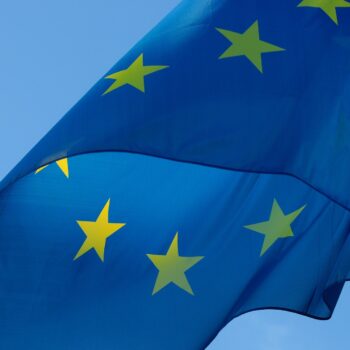Research and Innovation (R&I) is key for the European Green Deal and delivering climate neutrality by 2050. It will also be important for driving Europe’s economic growth and green recovery following the COVID-19 outbreak.
This workshop, co-organised by E3G and the Polish Ministry of Climate, presented the current state of play of R&I in the European Green Deal and climate neutrality, while drawing out the specific R&I needs and opportunities for Poland as it makes its own transition to climate neutrality.
This summary intends to highlight key takeaways from the discussion we hosted on 9 June 2020 and does not seek to be an exhaustive analysis of the topics discussed.
Event Summary
R&I as an engine of economic growth and green recovery for Poland
- As attention in Europe turns from the health impacts of COVID-19 to stimulating green and resilient economies, the role of R&I takes on a new importance. The pandemic has brought about a change in thinking and highlighted that innovation is needed for transformational change and scaling up new approaches to health, social and climate policy.
- For Poland, R&I provides a way of enabling the domestic transition to climate neutrality, maintaining economic competitiveness, and ensuring a future for its industries. Key industrial groups in Poland are poised to drive this transition, which could see investment equivalent to 4% of national GDP. Energy, industrial and engineering sectors are among those that are key to economic recovery and can be at the forefront of the transition to climate neutrality.
Policy action is needed in Poland to support businesses in key clean growth areas
- Implementing the European Green Deal and ensuring Poland takes advantage of the economic opportunities provided by the clean economy transition can only happen if policy makers take immediate action to help key sectors of the economy. These include energy efficiency, heating and cooling, public and private transport, boosting deployment of renewable energy sources, and modernisation of the power grid. Such measures would offer additional non-climate benefits, including improved quality of life and reduced air pollution.
- Policy action is needed to divest money in order to spur clean R&I and take the best advantage of EU support, which by itself is not sufficient and requires national action coordinated action with the EU to move private investment.
- From a business perspective, the R&I opportunities across these sectors are vast. The use of low carbon materials in building efficiency could total €57bn across the next decade, while low carbon transport could also present €20bn of investment opportunities.
The European Green Deal can support Poland’s climate neutrality transition and the EU
- The European Green Deal (EGD) is a unique roadmap for Europe, setting out policy and financial instruments for delivering technological, social, and economic innovation.
- Importantly, the EGD provides the economic mechanisms to finance the transition, giving an opportunity for Poland to power its transition and growth through EU R&I support.
- Poland faces specific challenges for climate neutrality, because of its dependency on coal, and the make-up of its economy and industrial sectors. EU R&I related funding can help with key growth areas such as low carbon industry (including steel, hydrogen, and specialist engineering for renewables), digital strategies, and the circular economy, and ensure that Poland is a key participant in green innovation processes, rather than a receiver of solutions.
- The €150bn in the Just Transition Fund, with solidarity at its core, will also be key for balancing the social aspects of the broader energy and economic transition to climate neutrality. Steps are being taken to help coal regions that are in transition, to ensure a diversity of industry, skills, and employment.
For more information please visit our Innovating for a better future series page here.


